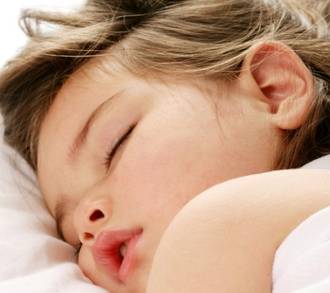How much sleep do babies & young kids need?
|
As parents we know that young children need their sleep to grow and develop, but many of us are unsure as to how much sleep babies, toddlers and pre-school kids actually need to reach their full potential. Unfortunately when it comes to sleep patterns, there’s no such thing as an ‘average’ child, but our sleep guide will give you an idea of what you can expect for newborns to 5 year olds, from day time naps to sleeping through the night.
|
You might also be interested in ...
8 Tips on kids asthma & sleepovers
Sleepovers with friends and family can be lots for fun for young kids. However if they or one of their friends has asthma, it pays to do a little planning up front. A new or unfamiliar environment can pose unforeseen problems that could trigger a child’s asthma, so good communication beforehand is key.
The effects of fruit on kids teeth
We all know that fruit is full of vitamins and an important part of kids diets, but did you know that too much fruit (whether it's fresh fruit, fruit juices, dried fruit or canned fruit) can have a negative effect and contribute to problems such as cavities and erosion, especially if your kids are grazing on fruit all day?







Unfortunately when it comes to sleep patterns, there’s no such thing as an ‘average’ child, but our sleep guide will give you an idea of what you can expect for newborns to 5 year olds, from day time naps to sleeping through the night.
How much sleep do babies & young kids need?
Have a read through our sleep guide to find out what sleep patterns are common for your little one's age and stage.
Newborn - 2 months old
2 - 4 months old
4 - 6 months old
6 - 12 months old
1 - 2 year olds
2 - 5 year olds
Daily sleep guide for newborns to 5 year olds
Check out our sleep guide by age to see how much sleep your baby, toddler or pre-schooler is likely to need each day.
7-9 hours (3-5 naps)
4-5 hours (3 naps)
4-5 hours (2-3 naps)
3-4 hours (2 naps)
2-3 hours (2 naps)
2-3 hours (1-2 naps)
2 hours (1 nap)
1-2 hours (1 nap)
0-1 hours